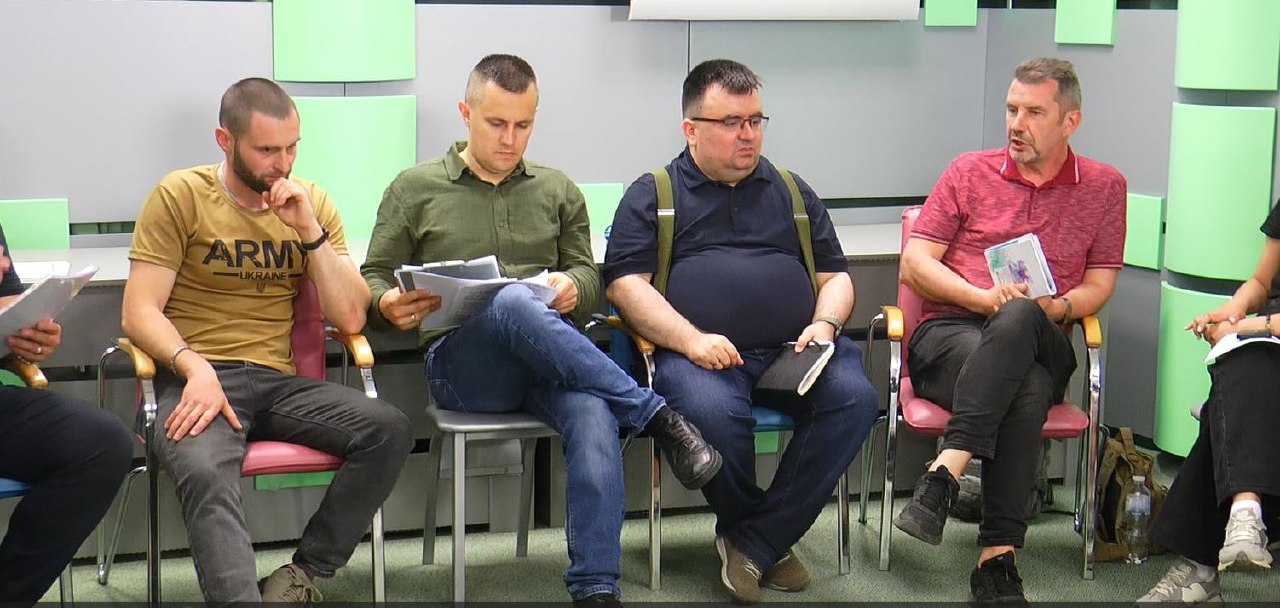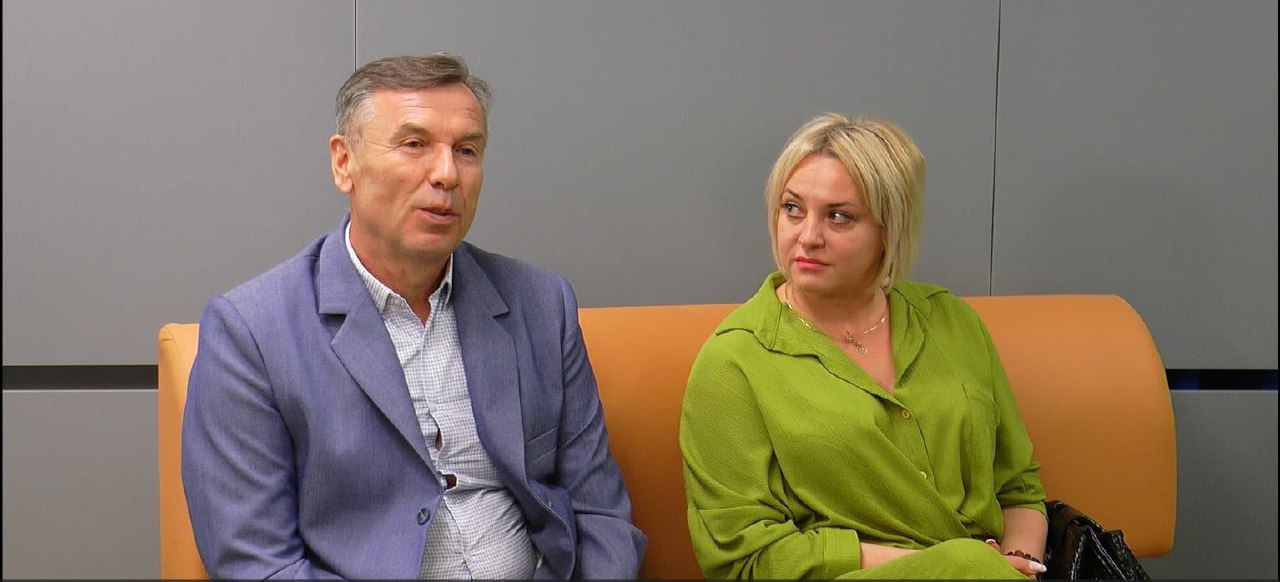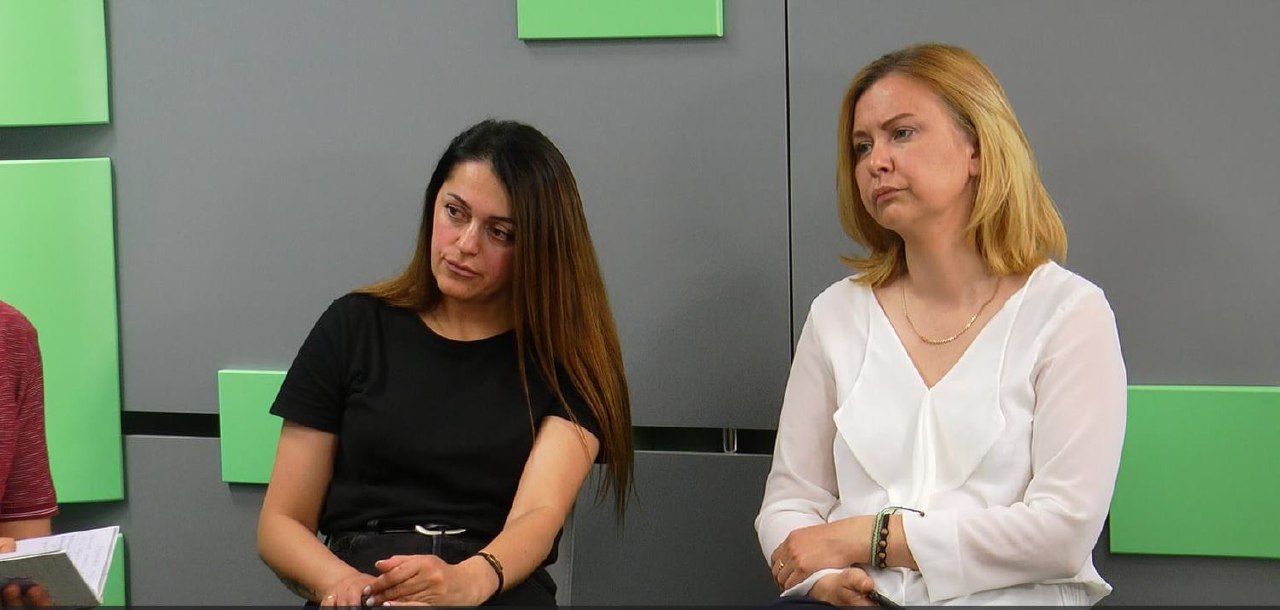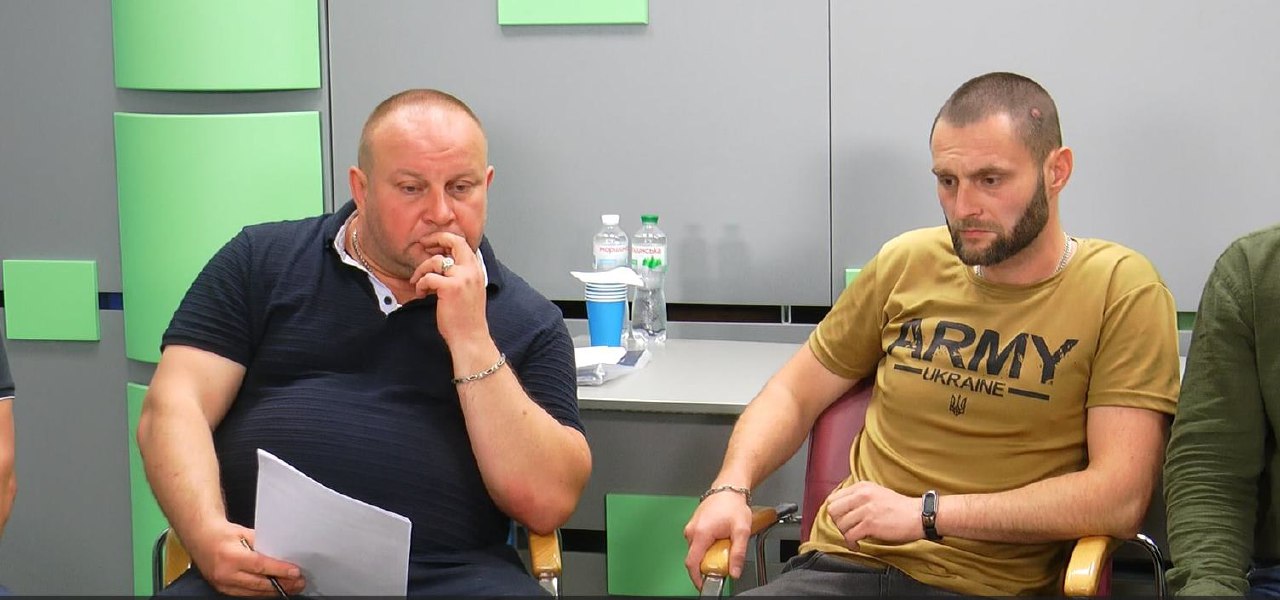How Zhytomyr region is preparing for new threats, why TikTok is becoming an instrument of information warfare, and what “defensive democracy” means in wartime – these and other issues were discussed by the participants of the Ukrainian Security Club’s offsite meeting on “National Security and Internal Cohesion: Challenges and Prospects” held on June 5 in Zhytomyr.
The event brought together military personnel, volunteers, academics, veterans, local authorities and experts to discuss strategic challenges in the border region and find ways to strengthen national resilience.
The discussion was moderated by Yuriy Goncharenko, Head of the UBC, and Oleksandr Gingizov, Coordinator of the Zhytomyr branch of the UBC. The participants of the event discussed the readiness of Zhytomyr region for security challenges, taking into account the proximity to the Belarusian border, the need to protect infrastructure, the issue of strengthening the resilience and cohesion of Ukrainian society, as well as the concept of defensive democracy, which involves an unwavering commitment to democratic values with a realistic approach to security challenges.
The event was attended by veterans Andriy Korniychuk, Anton Klyuchevsky and Oleh Babkin, psychologist Yulia Saroseko, volunteers and entrepreneurs Andriy Gursky, Ihor Sayuk and Oleksandr Katsimon, volunteer Olha Stakhivska, veterans Ihor Seiko and Ihor Fasolya, volunteer of the NGO “Steel Tyl” Kateryna Khatiashvili, volunteer Olena Lisova, city council member and owner of Polissia-Product LLC Oleksandr Rakovych and Colonel Vasyl Oleksiuk of the Ministry of Emergency Situations.

Meeting of the Ukrainian Security Club in Zhytomyr
The central topic of the meeting was a report by Oleksiy Ivashyn, coordinator of the Civil-Military Movement initiative group, entitled “Balance of Security and Freedom: A Model of Defense Democracy for Ukraine.” He noted that Zhytomyr region is one of the regions that demonstrates what it means to be in constant readiness to repel Russian aggression.
“There are no hostilities on the territory of the region, but it is subject to constant missile attacks. To the north, we have Belarus, a country with which we supposedly do not have a war, but from whose territory an attack was already carried out in 2022,” Ivashyn emphasized.
Oleksiy Ivashyn also reported on monitoring the situation with Belarus: “We are aware of the planned exercises in Belarus, and although there is no risk of concentration of large forces and means at the moment, everything can change.”
The veteran assessed the security situation in the region: “Currently, the level of threat of an attack on Zhytomyr region from Russia through Belarus is assessed as moderate, but it has certain peculiarities. The current state of affairs on the battlefield is characterized by the absence of prerequisites for the rapid advance of enemy troops. Ukraine’s defense forces are taking all possible measures to effectively deter the enemy. And the price Russia pays for the advance that sometimes takes place is incommensurate with common sense.”
“The war against an enemy like Russia will be long. We need to change the social model itself. Because now the state is not fulfilling its obligations – neither to veterans nor to civilians. This demotivates people and undermines our defense capability,” Ivashyn said.
The veteran emphasized the need for a balance between security challenges and democratic standards. That is why the initiative group is developing the concept of “defense democracy”. Among its key provisions are the preservation of the electoral process even in times of war, respect for human rights, political pluralism, freedom of speech, and the inevitability of punishment for collaborators and criminals against the state.
“If we do not preserve freedom of speech, if we do not have fair elections, then the question arises: what are we fighting for? Are we building a second Russia or the DPRK?” the movement’s coordinator emotionally addressed the audience.
Ivashyn also cited examples of countries that were able to combine defense and democracy, such as Finland, Israel, and the United States. He noted that during the interwar period, Finland was able to mobilize the entire population for defense without losing its democratic institutions. Israel is an example of a country that constantly lives under threats, but retains parliamentary control and freedoms. And the United States, after the September 11 attacks, was able to strengthen security without destroying the foundations of democracy.
“Defense democracy is not a utopia. It is a way of survival for countries like ours. And we have to build such a Ukraine,” Ivashyn summarized.
Particular attention of the participants was drawn to the topic of information security, which was disclosed by Yuriy Goncharenko as a representative of the InfoLight.UA research and analytical group.
“Modern warfare is not just about tanks, drones or infantry. It also includes information strikes designed to break the enemy’s will and create chaos. Today, the enemy’s most successful efforts are those aimed at creating splits in Ukrainian society. The main tools for implementing these attacks are social networks, primarily TikTok,” noted Honcharenko.
Particular attention should be paid to the TikTok platform, which, according to a number of international studies, has the potential for mass behavioral manipulation.
“The format of short videos promotes dopamine addiction, which reduces the ability of users to critically perceive information. Similarly to the mechanics of slot machines, TikTok’s algorithms deliberately alternate between interesting and less interesting videos, creating an” emotional swing “effect. Accordingly, the audience’s vulnerability to manipulative messages, including disinformation, is growing,” the expert emphasized.
An example of the effective use of TikTok as a tool of political influence is the election in Romania (2024), where a pro-Russian candidate was able to increase support from 3% to over 20% thanks to the active work of influencers on TikTok and Telegram. In the process of promoting this figure, mass influence tools were used, which later turned into a targeted campaign in favor of a particular candidate.
According to Yuriy Honcharenko, Ukraine is already witnessing manifestations of such scenarios. In particular, the intensification of information campaigns on TikTok and Telegram is aimed at delegitimizing the state’s mobilization policy.
The discussion of the region’s readiness for potential threats from Belarus sparked a lively debate. The participants discussed the need to strengthen fortifications, improve the territorial defense system, and raise the level of security awareness of the population.
At the same time, Yuriy Honcharenko warned of potential risks.
“Another situation could potentially arise if the enemy attacks in an area where there are insufficient forces and means to deter it. For example, if there is an attack on Zhytomyr region and we are not prepared for it, there is a high risk of rapid advance of the enemy. Accordingly, we must not only be ready to repel the attack, but also have echeloned fortifications and other measures to deter a potential offensive in place,” the expert emphasized.
Meeting of the Ukrainian Security Club in Zhytomyr
Oleksandr Gingizov, a veteran and coordinator of the Zhytomyr branch of the UBK, emphasized the importance of national and patriotic education of young people:
“We have to raise a generation that will be ready to defend their land and at the same time value democratic principles. This is the basis of our future security.”
Oleksandr Gingizov, who has combat experience and spent 2.5 years on the front line, drew attention to a number of issues that affect not only Zhytomyr region but the entire country. The veteran emphasized that one of the most important tasks in difficult wartime is to consolidate society and direct it to help the Armed Forces.
“Some issues, unfortunately, divide society,” Gingizov stated. In his opinion, one of the main tasks of the Civil-Military Movement is to consolidate and preserve the unity of society. “We have to direct maximum efforts to help the Armed Forces,” the veteran emphasized.
He reminded that it is thanks to the soldiers who defend the borders that Ukrainians are able to move freely and live in the rear. For those who have returned from the front, adaptation to civilian life is a challenge, but they continue to look for ways to be useful to the front.
Of particular concern is the issue of public motivation and the state of the fight against indifference. The veteran noted that a significant part of the population is currently demotivated.
“Our shield, in the form of our Armed Forces, has been holding out for more than three years. Those who have been there know the cost of this,” he said.
According to Oleksandr Gingizov, the main message that should become the guiding one for every Ukrainian is the following: “Either we join the ranks of the Armed Forces or we help the Armed Forces.” The veteran emphasized the need to provide the rear with “positive and normal, healthy thoughts and ideas” as much as possible.
Serhiy Tvardovsky, a veteran who served for a year and a half as a psychologist officer in the 516th separate battalion named after Ivan Bohun, emphasized the importance of rehabilitation and socialization of veterans and providing soldiers with psychological support and advice on legal and social issues. He also called for filling the segment of national-patriotic education among young people.

Meeting of the Ukrainian Security Club in Zhytomyr
Kateryna Khatiashvili, a volunteer with the Steel Home Front NGO and tactical medicine instructor, emphasized the importance of national-patriotic education and military training for young people, and the widespread introduction of tactical medicine courses. “Physically strong and morally strong youth is our future,” the volunteer emphasized.
War veteran and disabled veteran Andriy Korniychuk emphasized the importance of sports and football for the physical and social rehabilitation of veterans and the need to improve the legal regulation of benefits for defenders.
Volunteer and private entrepreneur Anatoliy Gursky noted the crucial role of the active minority on the Maidan and in Ukrainian public life and emphasized that our soldiers also belong to this category. Therefore, the rehabilitation of veterans should be based on the state’s respect for the defenders who gave their health to the country.
Olena Lisova, a private entrepreneur, emphasized the need to improve the financial literacy of Ukrainians, from schoolchildren to pensioners, as this area is one of the most important categories of public security.

Meeting of the Ukrainian Security Club in Zhytomyr
She cited the example of pensioners in civilized countries, where the elderly can travel and develop. Instead, the example of our pensioners who still go to work or look for another job after their working life, without having health, is a sad signal that we are doing something wrong.
Psychologist and psychotherapist Yulia Saroseko drew attention to the strengthening of the role of psychological assistance to Ukrainian soldiers, their families and victims of war.
Anton Kliuchevskyi, a war veteran and disabled veteran , called for following the example of countries that were in the same situation as Ukraine, in particular Finland, and for systematic defense training for young people and the population. The warrior emphasized the need to educate young people in the spirit of respect for their homeland and the active steps of the state and local communities to ensure the moral and patriotic development of the new generation of Ukrainians. The defender also emphasized the need to regain the Ukrainian information space on social media, in particular on Tik Tok, given the huge impact of such content on the minds of Ukrainians.
The participants also discussed the demographic challenges facing Ukraine and ways to overcome them. According to Oleksiy Ivashyn, “a demographic catastrophe is something that could destroy Ukraine in the coming decades, so we must work on this issue as a priority.”
The participants’ attention was drawn to the problem of reforming the DFTG and the active participation of volunteers in assisting the Armed Forces and assisting in air defense mobile fire groups. At the same time, it was emphasized that the terrorist defense system in Ukraine, although it has played its role, needs to be further improved and is needed in the future, and the potential and enthusiasm of local volunteers needs to be developed.
As a result of the meeting, a number of practical recommendations were developed to strengthen the region’s security, support veterans and develop a system of national-patriotic education. The organizers of the event plan to submit these proposals to state and local authorities.
The Ukrainian Security Club is a platform that brings together representatives of the Security and Defense Forces, government and local self-government, think tanks, academics, public and political figures, and entrepreneurs who coordinate their activities to ensure Ukraine’s stable development, achieve sustainable peace, overcome internal contradictions, and promote social cohesion.



Leave a Reply